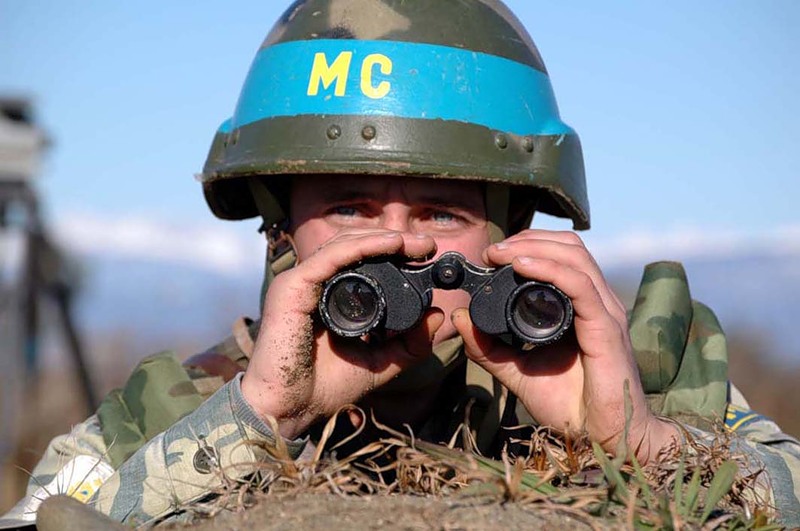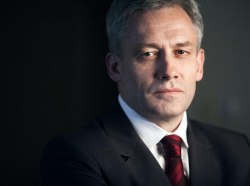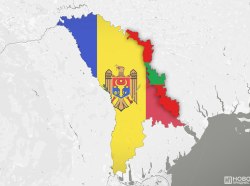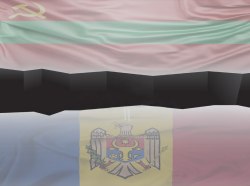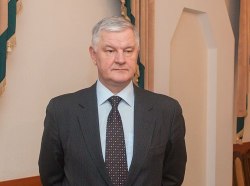The expert of the Regnum News Agency Sergei Artyomenko tells about the paradoxes of the Moldovan authorities and concludes that it is difficult to build up a partnership with them. We quote the unchanged text of the article:
In early February, the Moldovan delegation to the Joint Control Commission (the governing body of the peacekeeping operation on the Dniester) has issued an official appeal reported on the possible provocations at the Joint Peacekeeping Force posts. Representatives of Moldova (RM) stated that the presence of peacekeepers allegedly ''caused indignation among the residents of the villages Cosnita, Parata, Dorotcaia and Pohrebea'' (territories of the PMR occupied by Moldova). The Co-Chair from the RM said that if the peacekeeping posts were not removed, the peacekeepers ''would be hunted down by a pitchfork-wielding mob.''
In response, the Co-Chairman of the JCC from Pridnestrovie, Oleg Belyakov proposed to take measures to prevent tensions escalation in the Safety Zone, noting that Chisinau is working on various scenarios of the destruction of the existing peacekeeping mechanism. Pridnestrovie proposed to conduct urgent briefings and training of the rapid response teams and prepare the strengthening of posts in case of complication of the situation, as well as to consider the issue of increasing the size of the Russian peacekeeping contingent.
It seems like a paradox: the “pro-Russian power” in Moldova, headed by the President Dodon, voices threats against the peacekeeping operation and the Russian military. Even the former democratic authorities with their Russophobic position did not stoop to that.
Let's try to figure out what's the reasons for this first glance paradoxical situation.
As it is known, there were overestimated expectations linked to the election of Igor Dodon to the post of President of Moldova at the end of 2016.
During the electoral campaign and after it Igor Dodon has made many loud statements so even entrenched sceptics took side with him. It was hard to ignore such loud assumptions as ''Crimea is Russian''; the only solution on Pridnestrovie ''is federalization'', the socialists would firmly follow their program of ''denunciation of the EU Association Agreement and integration into the Eurasian Union. Also, he stated that a new trade agreement with the EU should be reached in a three-way format with the participation of Russia; that he would not allow Moldova to be involved in NATO structures and its military operations; that his party would not make any coalitions with Plahotniuc's party in the Parliament. The President of Moldova willingly spoke about all this in an interview with Russian News Agencies, including Kommersant on October 26, 2016, and TASS on December 12, 2016.
Dodon assured that to realize his pompous promises he lacked only the support in Parliament.
Three years later these promises are forgotten, though the Parliament supports Igor Dodon and the government of ''technocrats'' was appointed with his personal blessing. It seems like all it was in a dream. Now he continues to promise, but quite different things. So those who believed in his words now are ashamed of their choice.
In Moldova and Pridnestrovie itself, changes in Dodon's rhetoric were noticed in the spring of 2017. These changes were directly related to attitude to Pridnestrovie. Thus, Igor Dodon refused the plan of federalization, then following Vladimir Plahotniuc Party he had declared the unified position of all branches of Moldova Government on the Pridnestrovian problem. Then he supported the introduction of the joint border and customs control of Moldova and Ukraine on the Pridnestrovian section of the border. The President of Moldova could not but know that both Moscow and Tiraspol categorically opposed the implementation of such plans to establish a new economic blockade of Pridnestrovie.
Today, the new ''pro-Russian'' Moldovan leadership is in no hurry to implement previously signed agreements with Pridnestrovie. The Moldovan side has blocked the execution of agreements on the telecommunication and the distribution of radio frequencies between Pridnestrovie and Moldova, the closure of politically motivated criminal cases against Pridnestrovian citizens, as well as on the unlocking of the railway. The signing of the final protocol of the meeting of the 5 + 2 international negotiating format in Bratislava on 9 – 10 October 2019 was purposefully disrupted by the Moldovan side. This astonished even Western participants.
The other day, February 14, 2020, the President of Moldova fell against Pridnestrovie with accusations in late Voronin style: smuggling, stealing Russian gas. He directly accused the Pridnestrovian authorities of ''making billions of dollars on the so-called black hole'', stealing Russian aid and ''wanting to preserve this situation to make money''.
Igor Dodon has recommended himself as chatter, greed and actual betrayal of his partners in Moscow and Tiraspol. Now, six months before the presidential election, he tries to use information wave again. However after 4 years this wave of accusations, hysteria and blackmail, exactly as it was with his former mentor and leader Vladimir Voronin, as well as with partner Vladimir Plahotniuc, no longer brings the desired effect. The electoral ratings inexorably crawl down, despite the endless approval of court sociologists.
Moscow clearly understands that Moldova's concept of permanent neutrality is invented to demand the withdrawal of Russian troops and weapons, as well as the dismantling of the peacekeeping operation without waiting for a political settlement of the conflict. It is obvious that the unionist movements win the increasing support of the population, and Igor Dodon's desire to cooperate with the EU and revise the European Union Association Agreement has been transformed into curry favour with Brussels.
Today Pridnestrovie is under Moldovan attack again, but now it is from the ''pro-Russian'' authorities of the Republic of Moldova: threats are made to destroy peacekeeping posts, the banking blockade of Pridnestrovie is expanding, the transport war is unfolding, problems with mobile communication are exacerbated, etc.
Under these conditions, it is obvious that Igor Dodon should be considered no more than a lame duck, but not a reliable partner.

